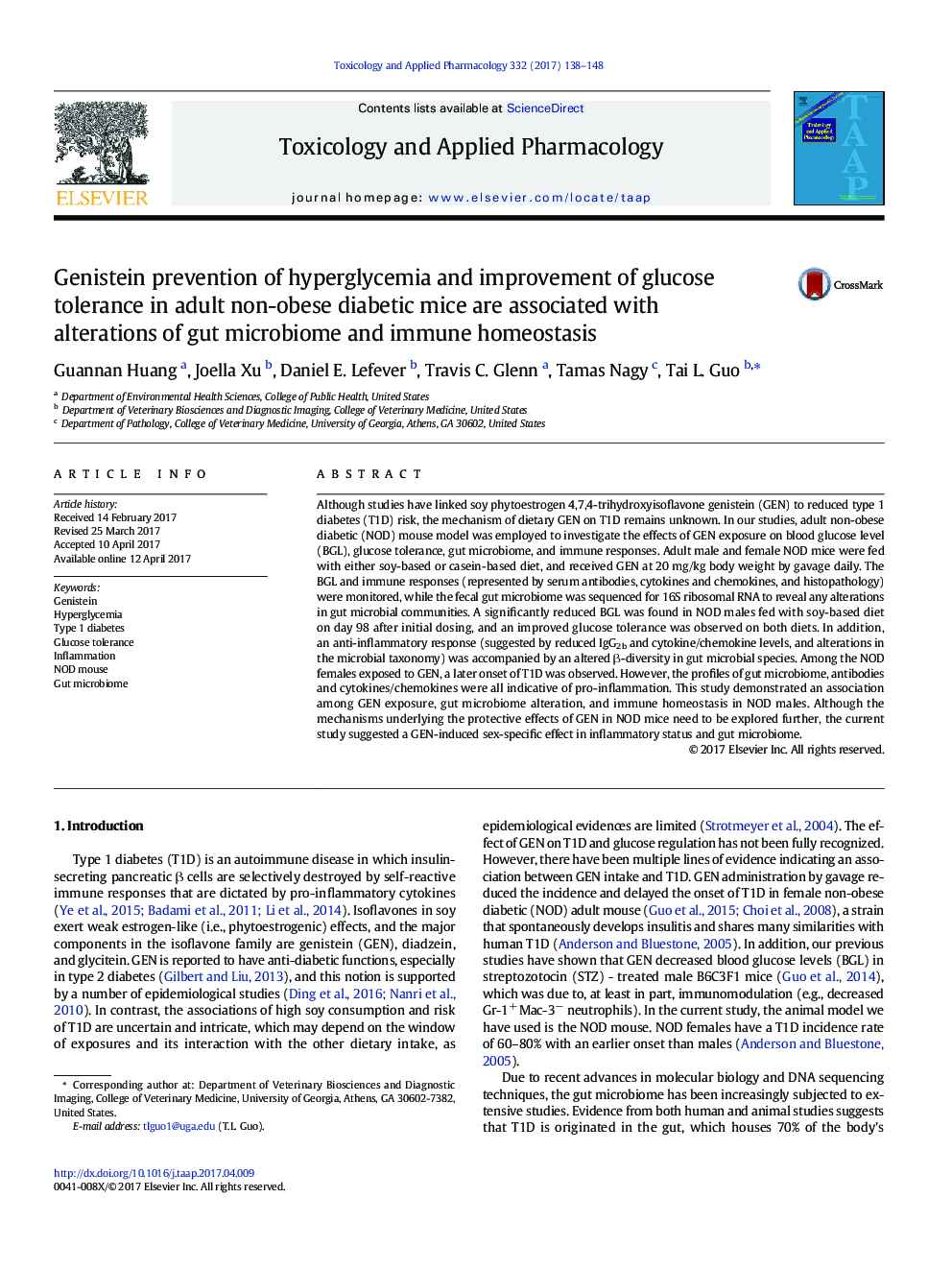| کد مقاله | کد نشریه | سال انتشار | مقاله انگلیسی | نسخه تمام متن |
|---|---|---|---|---|
| 5558400 | 1561130 | 2017 | 11 صفحه PDF | دانلود رایگان |

- GEN reduces blood glucose level and improves glucose tolerance in NOD males.
- GEN delayed type 1 diabetes onset in NOD females.
- GEN produces a perturbed gut microbiota in both NOD males and females.
- GEN produces anti-inflammatory responses in NOD males.
- GEN produces pro-inflammatory responses in NOD females.
Although studies have linked soy phytoestrogen 4,7,4-trihydroxyisoflavone genistein (GEN) to reduced type 1 diabetes (T1D) risk, the mechanism of dietary GEN on T1D remains unknown. In our studies, adult non-obese diabetic (NOD) mouse model was employed to investigate the effects of GEN exposure on blood glucose level (BGL), glucose tolerance, gut microbiome, and immune responses. Adult male and female NOD mice were fed with either soy-based or casein-based diet, and received GEN at 20 mg/kg body weight by gavage daily. The BGL and immune responses (represented by serum antibodies, cytokines and chemokines, and histopathology) were monitored, while the fecal gut microbiome was sequenced for 16S ribosomal RNA to reveal any alterations in gut microbial communities. A significantly reduced BGL was found in NOD males fed with soy-based diet on day 98 after initial dosing, and an improved glucose tolerance was observed on both diets. In addition, an anti-inflammatory response (suggested by reduced IgG2b and cytokine/chemokine levels, and alterations in the microbial taxonomy) was accompanied by an altered β-diversity in gut microbial species. Among the NOD females exposed to GEN, a later onset of T1D was observed. However, the profiles of gut microbiome, antibodies and cytokines/chemokines were all indicative of pro-inflammation. This study demonstrated an association among GEN exposure, gut microbiome alteration, and immune homeostasis in NOD males. Although the mechanisms underlying the protective effects of GEN in NOD mice need to be explored further, the current study suggested a GEN-induced sex-specific effect in inflammatory status and gut microbiome.
Journal: Toxicology and Applied Pharmacology - Volume 332, 1 October 2017, Pages 138-148